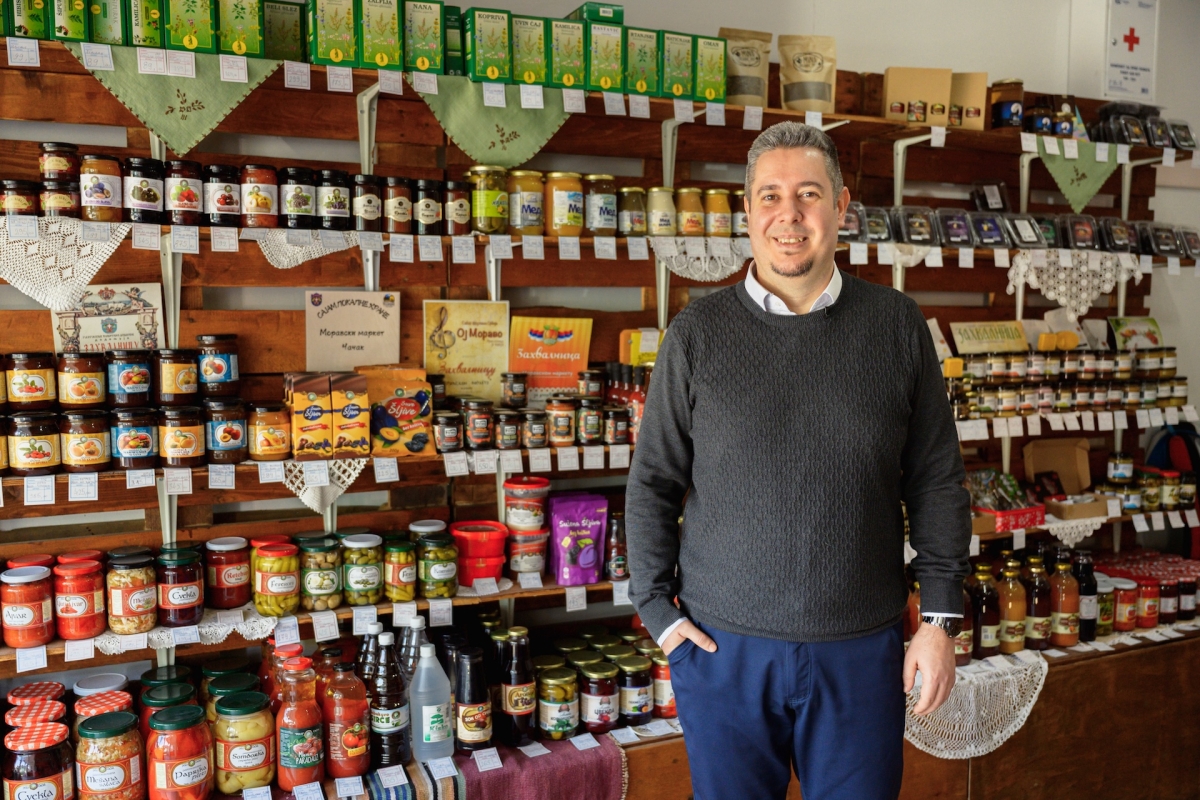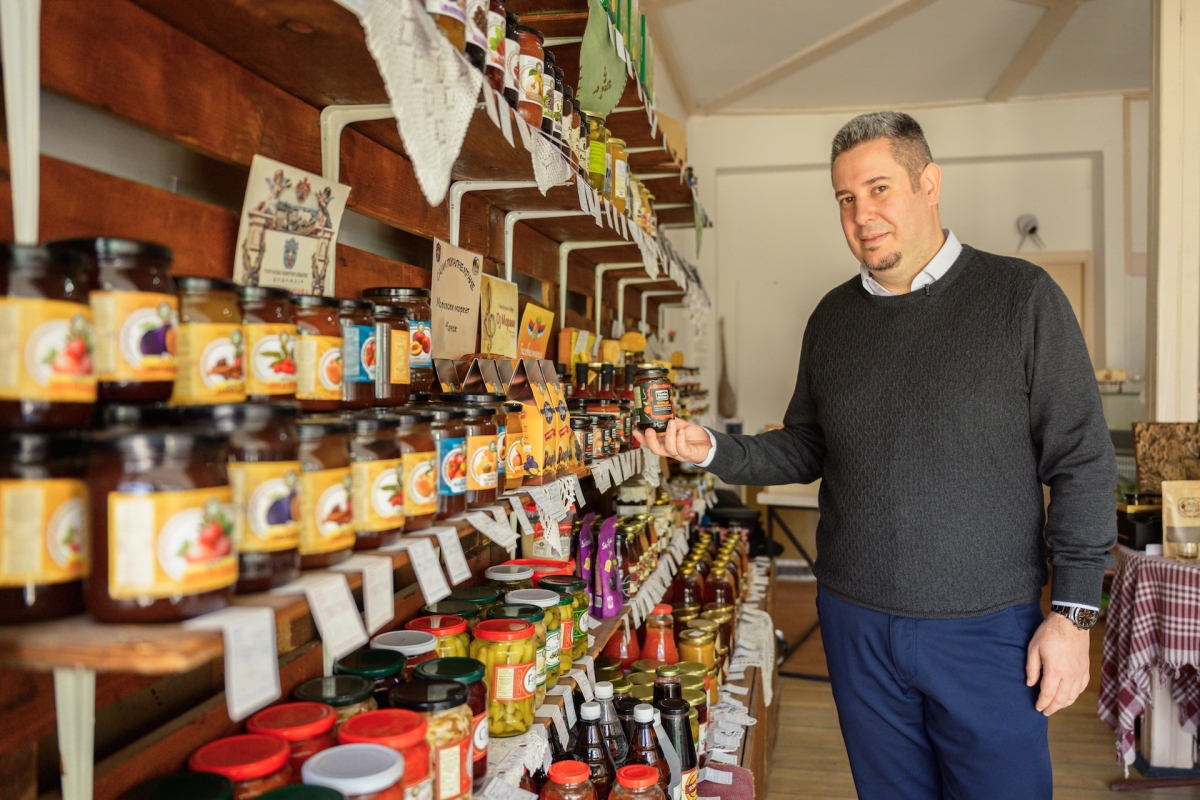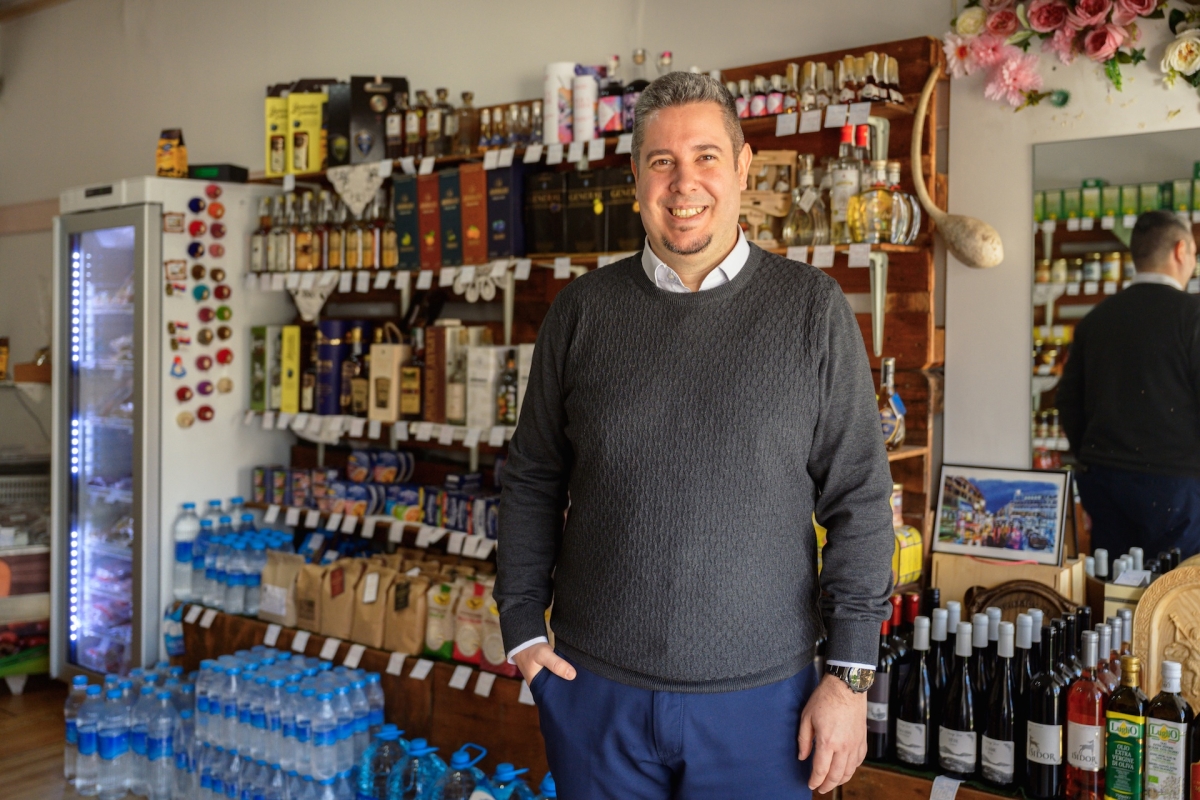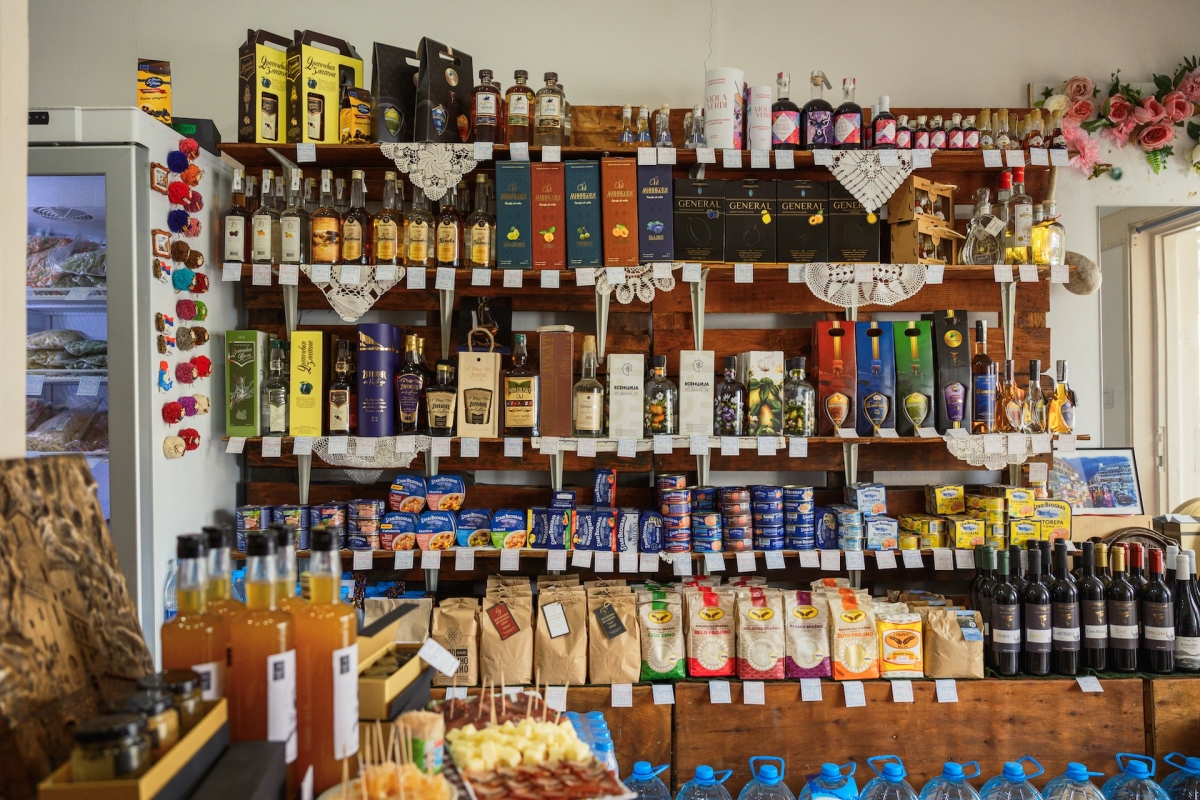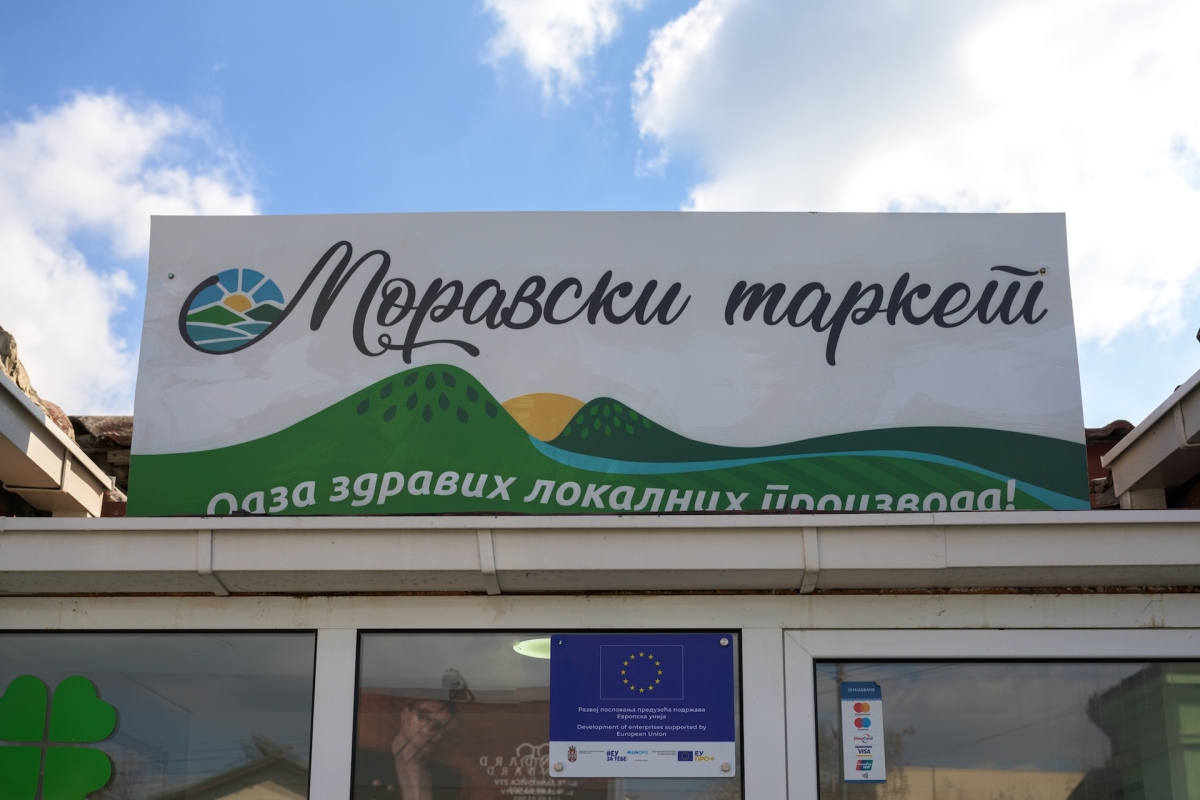Čačak, 1 May 2025
Local Point of View: Community as a Market—Changing the Rules of the Game
Within the EU PRO Plus programme, the European Union has supported the strengthening of local organisations that are the backbone of small business development in communities. One of the most notable examples comes from Western Serbia—from the heart of the Moravički District, where the Local Action Group "Čačak–Gornji Milanovac", together with the business association "Union Čačak 2000", launched the "Moravski Market" initiative. With the support of a 44,616 Euros EU grant, a unique platform was created for the promotion and sale of local products from small and medium-sized producers from Čačak, Gornji Milanovac and Lučani. We spoke to Nedeljko Radulović, manager of the LAG and founder of "Moravski Market", about how one local initiative can spark an entire network of small businesses.
1. Why are micro and small businesses important to local economic development, especially in rural areas like the one you live in?
Because they are the most resilient unit of the local economy—flexible, adaptable and rooted in the community. Small businesses are not just a number on the market, but concrete people and families who live from their work. In rural areas, they often take on a broader social role—they preserve crafts, process domestic products, restore traditions and make the village a place of life, not just production.
2. How did the EU support through the EU PRO Plus programme contribute to the development of your market model and strengthening of local entrepreneurs?
The support came to us at the right moment—the idea of the "Moravski Market" was well developed, however in terms of infrastructure it was unsustainable. EU funds enabled opening a real sales area, setting up an online store, and providing logistics to small producers. We prepared them to produce according to the rules of the market, and sell according to the rules of the community. Our association has become a sort of a bridge—between local and digital, between small production and high expectations of the market.
3. How important is it for local organisations, like the one you represent, to receive systematic support in the development and provision of services to small businesses?
It is important to understand that businesses do not grow in a vacuum. As a local organisation, we function as a service station for small producers—we help them with the administration, obtaining the necessary certificates, and learning to use digital tools. A system without such local points of support easily becomes elitist. That is why systematic support and investment in small business support organisations is an investment in the permanent infrastructure of development.
4. In what way can investments in economic infrastructure contribute to people staying in local communities and reduce economic migration?
When someone sees that there is an infrastructure in his village that allows him to sell his products, access the market and develop a business—then there is a reason to stay. Economic infrastructure is often invisible, but it is crucial: logistics, digital connectivity, sales centres, cold stores, markets like ours. It creates a foundation for people from rural areas to have economic certainty and predictability and build a future. And that is the only way to prevent migration to be the only option, but to create conditions to stay and survive in the countryside.
5. Within your work, many producers also show a high level of social responsibility. How important is it for local businesses to stay connected to the community they belong to?
In our organisation it is, to say, organic—producers do not help the community because it is a marketing trend, but because they are part of that same community. When you have a market that operates according to the "neighbor to neighbor" principle, social responsibility is not an addition but the essence. Many of our partners donate products to kindergartens, participate in humanitarian actions, or help the elderly in the village. And it's not a coincidence, it's a value-based business model.
6. How do you see the future of local business development and what do you think is the next step after such support programmes?
I think the next challenge is in transformation—not only to open new enterprises, but to enable the existing ones to become digital, sustainable and competitive. We are already working on the development of a joint brand, on the protection of geographical origin and the promotion of local food through rural tourism and local hospitality. The next step is to network all those initiatives. If we do not create an ecosystem—we will lose continuity. And only through continuity and systematic support can we achieve sustainable development.
